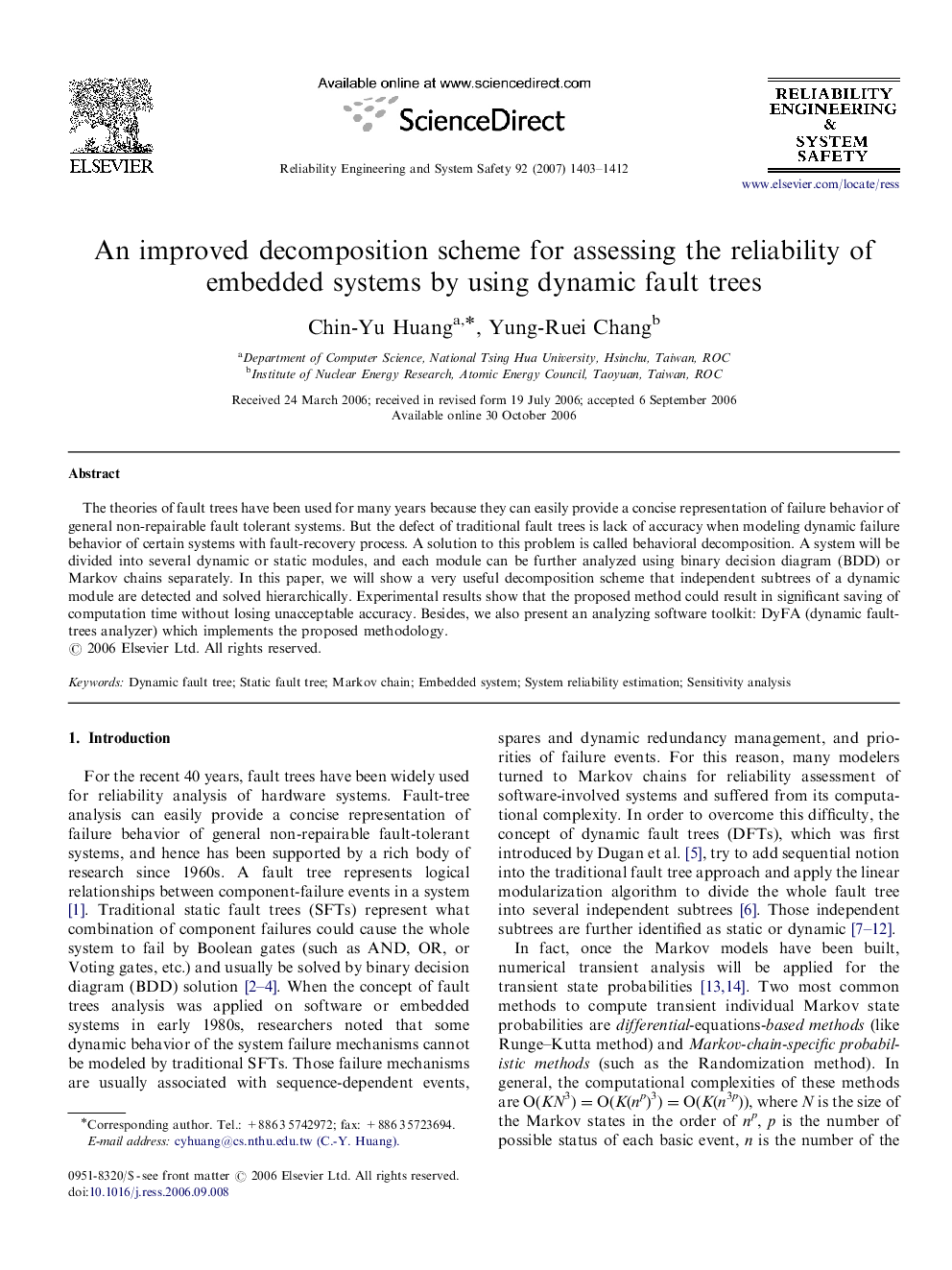| Article ID | Journal | Published Year | Pages | File Type |
|---|---|---|---|---|
| 806539 | Reliability Engineering & System Safety | 2007 | 10 Pages |
The theories of fault trees have been used for many years because they can easily provide a concise representation of failure behavior of general non-repairable fault tolerant systems. But the defect of traditional fault trees is lack of accuracy when modeling dynamic failure behavior of certain systems with fault-recovery process. A solution to this problem is called behavioral decomposition. A system will be divided into several dynamic or static modules, and each module can be further analyzed using binary decision diagram (BDD) or Markov chains separately. In this paper, we will show a very useful decomposition scheme that independent subtrees of a dynamic module are detected and solved hierarchically. Experimental results show that the proposed method could result in significant saving of computation time without losing unacceptable accuracy. Besides, we also present an analyzing software toolkit: DyFA (dynamic fault-trees analyzer) which implements the proposed methodology.
